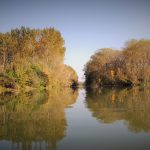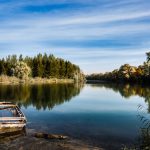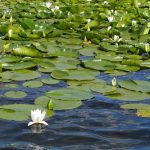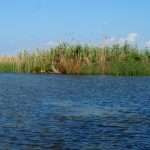The Host Laboratory for the Danube Delta Supersite, located at the DANUBIUS-RI Hub at Murighiol on the edge of the Delta, will be led jointly by the National Institutes for Biological Sciences (INSB) and for Marine Geology and GeoEcology (GeoEcoMar).
The Danube is an exemplar of a river-delta-sea system impacted by geopolitical complexity in a catchment of >800,000 km2. The system connects 19 countries of contrasting economic, social, cultural, and environmental heritages, as well as different political backgrounds. After flowing for over 2,800 km across Central and Eastern Europe, the Danube River forms a wide delta at its confluence with the Black Sea. The Danube Delta, shared by Romania and Ukraine, is the largest remaining natural wetland in the EU (~5,800 km2) and one of the most valuable habitats for wildlife and biodiversity in Europe. It was declared a Biosphere Reserve in 1990 and is included in the World Natural Heritage List, the Ramsar Convention List and the UNESCO Programme Man and Biosphere. The Danube Delta Biosphere Reserve Administration manages >5,500 km2 of protected coastal wetlands and has been involved for the past 25 years in the environmental restoration of degraded areas and conservation and sustainable management of the entire Biosphere Reserve territory.
The combination of high habitat heterogeneity, hosting a rich diversity of biological communities, active sediment deposition at the river mouth, the surface and underground network of channels that allow water circulation in the Delta, and the continuous modification of the Delta geography together make this area an invaluable natural laboratory.
The Supersite will cover the Biosphere Reserve, including part of the Black Sea under the Danube influence. The facilities will include: field equipment for sampling and in situ observations; laboratory equipment for primary sample processing and immediate analysis; pier facilities for research ships and boats. Micro- and mesocosm facilities will be deployed in areas of critical scientific interest using the support and opportunities given by the Hub. Floating facilities, UAVs, vessels and other specialised equipment will be available for research in the Delta – Black Sea interaction zone.
A particular feature of the Danube Delta Supersite will be facilities for collaboration with existing ESFRI projects, including:
- a network of sensors for the measurement of geodynamics (from profound to superficial subsidence) as a potential contribution to EPOS
- a dedicated platform in the river-sea interaction zone as a continuation of EMSO into coastal transitional and freshwater zones
- dedicated aqueous ecosystem inputs to LIFEWATCH
- greenhouse gas measurement towers as inputs to ICOS
- areas for experimental sites for reeds and other aquatic/wetland plants as a potential contribution for AnaEE
- facilities for biota collection as a potential contribution to EMBRC







